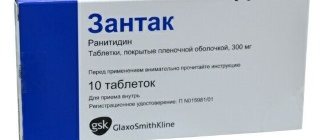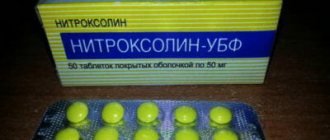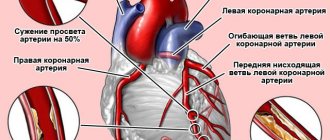Write a review
Reviews: 0
Manufacturers: McNeil Consumer & Specialty Pharmaceuticals
Active ingredients
- Paracetamol
Disease class
- A sore throat
- Fever of unknown origin
- Headache
- Other constant pain
- Tooth pain
Clinical and pharmacological group
- Not indicated. See instructions
Pharmacological action
- Antipyretic
- Analgesic (non-narcotic)
Pharmacological group
- Anilides
Release form and composition of Tylenol
This medication is available in several forms, which allows the patient to choose the one that is more convenient for use; the name may be Tylenol tylenol extra strength, gold, etc. Currently it has the following release forms:
- capsules contain 500 mg of the main substance, sold in blisters in a package of two;
- suspensions are available in bottles with a measuring cup;
- infusion solution;
- suppositories are available in weights of 0.1, 0.2 and 0.35 g; one package contains ten rectal suppositories;
- powder.
The main active ingredient of this medicine is paracetamol; starch, stearic acid, and magnesium stearate will act as auxiliary ingredients. The composition will depend on the form of release of the medication.
Precautionary measures
Use of the drug in adults is limited to 10 days as an analgesic and 3 days as an antipyretic. The product should not be taken together with other products containing paracetamol, which is also used as an active substance in the drug Tylenol.
Instructions, use, and reviews indicate that taking the pediatric version of the drug should be limited to 5 days as a painkiller, subject to therapeutic doses appropriate for the child’s age. As an antipyretic for children, Tylenol can be given to children for no more than 3 days.
Instructions for use in Russian
Tylenol instructions for use contain information on how to use the medicine correctly, contain information about to whom it is contraindicated and for what diseases it is recommended. Before ordering the product, you should read the instructions, which are publicly available on the Internet and contain all the necessary information.
Indications for use
Tylenol (Tylenol gold) is prescribed to people suffering from such diseases as:
- arthrosis;
- arthritis;
- radiculitis;
- for periodic or persistent headaches, including migraines;
- myalgia.
It is also used to relieve toothaches and symptoms that occur during colds (chills, muscle pain, joint aches, etc.).
Directions for use and dosage
In accordance with the instructions, the medication should be taken before meals, as if taken after, the effects of paracetamol will be delayed, and you should also drink it with plenty of water.
- up to 12 years of age, Tylenol is prescribed in accordance with the instructions, taking into account the child’s weight, that is, a certain amount of grams is distributed per daily dose as needed;
- for persons whose age is over 12 years, a single dose should not exceed 1 g, no more than 4 g can be consumed per day. The period during which the medication can be taken daily is no more than seven days;
- As for taking the medicine rectally, for adults a single dose can be from 500 mg to 1 g, but during the day it should not exceed 4 g, for adolescents from 12 to 15 years old, up to 300 mg at a time up to four receptions per day.
Attention: for patients with Gilbert's syndrome and for elderly citizens with any diseases, the dose of the medicine should be reduced when used, and the intervals between doses should be increased.
Contraindications
Almost all medications have a number of contraindications, Tylenol is no exception; this drug is contraindicated:
- if there is an allergic reaction or other intolerance to the components included in the medicine;
- in the presence of insufficiency in the liver or kidneys;
- with existing liver diseases, such as viral hepatitis;
- chronic alcohol dependence;
- diabetes of any type;
- the drug is also contraindicated for children less than three months old;
- During pregnancy and breastfeeding, the use of this product is not recommended.
Attention: the use of a medicinal substance is not permissible together with alcoholic beverages, as this combination reduces the effectiveness of the effect on the body and can lead to the development of acute pancreatitis.
Side effects
Almost every substance can have side effects caused by overdose or individual intolerance to the drug, Tylenol is no exception:
- manifestations on the skin can be in the form of rashes accompanied by itching, swelling of the mucous membranes, exudative erythema;
- the central nervous system may also be affected, manifested in the form of dizziness, the appearance of nervous excitement, possible disturbance of orientation;
- As for the digestive system, nausea followed by vomiting and pain in the abdominal area may appear;
- There may also be disturbances in the endocrine system, which will manifest themselves in the form of glycemia, which can lead to coma;
- side effects can affect the human circulatory system, resulting in diseases such as pain in the heart, shortness of breath, anemia, and with long-term use of the drug in excess of permissible doses in aplastic anemia, leukopenia, thrombocytopenia;
- In case of overdose, the genitourinary system may be damaged, renal colic, nephritis, papillary necrosis may appear;
Attention: in order to reduce the risks of overdose and side effects, you should carefully study the instructions for use and the composition of the drug; if in doubt, you should definitely consult a doctor.
Overdose
Symptoms of an acute overdose of the drug appear after 6-14 and are expressed in the form of diarrhea, nausea with possible vomiting, loss of appetite, as well as pain attacks in the abdominal area.
Chronic overdose appears after two to three days, accompanied by such symptoms as:
- pain;
- state of weakness;
- increased sweating;
- the appearance of seizures;
- cerebral edema;
- disturbances in liver function, etc. may also appear.
Treatment is prescribed depending on the situation, after a blood test is taken and the amount of paracetamol in the blood is determined. For first aid in case of acute overdose, gastric lavage is possible, followed by the introduction of SH donors, glutathione, and methionine into the body.
Side effects
Long-term use of the medication can provoke the development of negative manifestations from various systems of the human body.
Side effects:
- skin: development of angioedema, appearance of skin rash accompanied by itching, development of erythema multiforme;
- Central nervous system: disturbance of orientation in space, severe agitation, headaches, dizziness;
- Gastrointestinal organs: epigastric pain, nausea, increased liver enzymes, development of hepatonecrosis;
- endocrine system: development of hypoglycemia and hypoglycemic coma;
- circulatory system: heart rhythm disturbances, the occurrence of heart pain, anemia, the development of thrombocytopenia, aplastic anemia, pancytopenia, agranulocytosis;
- organs of the urinary system: the appearance of papillary necrosis, nephritis, renal colic.
Use in childhood
Tylenol for children is used from three months and not earlier before giving it, you should consult your pediatrician. Children's Tylenol is given for colds to relieve pain during teething, and can be used when the temperature rises after vaccination. For children, Tylenol is available in the form:
- suspension (rainbow tylenol) is given to children from 3 months to one year in an amount of no more than 5 ml per day, from one year to six no more than 10 ml, for ages 6 to 12 the dose should not exceed 20 ml per day;
- Tylenol suppositories for babies from 3 to 6 months 80 g up to two times a day, for children up to one year also 80 g, but can be used up to three times a day, from one to two years, a single dose is also 80 g, up to 4 times , children from 2 to 4 150 g, up to 3 times, up to 6 years old can be given 150 g, up to 4 times a day;
- syrup for children is used in the same way as a suspension in accordance with the age and weight of the child;
- chewable tablets with flavoring additives are given to children from two years of age, from 2 to 4 years two tablets per day are allowed, from 4 to 5 to three, from 7 to 8 four, from 9-10 years up to five tablets per day.
Attention: it is not recommended to give medication to children for more than three days without consulting a doctor; the established intervals between doses should also be strictly observed; they should not be less than four hours. The use of medications must be strictly according to instructions.
Drug overdose
Taking too large a dose of Tylenol can lead to renal colic, interstitial nephritis, and papillary necrosis.
Overdose usually occurs after taking 150 mg per 1 kg of weight, taken over a short period of time. The symptoms of this condition are as follows:
- In the first 24 hours - pallor and nausea, vomiting, severe, often cutting pain in the abdominal area.
- 12-48 hours later, liver and kidney damage occurs with possible liver failure (encephalopathy, coma, and death are possible).
Liver damage is almost inevitable after adults take 10 g of the drug over a short period.
If signs of overdose occur, you should:
- rinse the stomach immediately;
- induce vomiting;
- drink “Acetylcysteine” or “Methionine”;
- take symptomatic medications in accordance with the signs of malaise that appear.
Interaction with other drugs
When using Tylenol, you should consider the interaction of the main substance with other medications used:
- when Tylenol is used together with drugs that reduce the formation of stones in the urinary system and promote their elimination, their effect will be reduced;
- if the prescribed doses for taking Tylenol are exceeded, the effect of anticoagulant drugs increases;
- the use of substances such as ethanol, antidepressants, hepatotoxic drugs can contribute to the development of intoxication;
- Barbiturates reduce the effectiveness of Tylenol.
Before you start taking Tylenol, you should study the instructions and in cases where you are taking any other medications, pay attention to what is said in the instructions about interactions with other substances. You should also consult a doctor.
Contraindications for use
According to the instructions, Tylenol is contraindicated in case of individual intolerance to the active components of the drug, as well as in children under one month old.
When prescribing Tylenol, you should pay special attention to patients who have the following diseases:
- renal and liver failure;
- hepatitis of viral origin;
- benign hyperbilirubinemia;
- blood diseases;
- chronic alcoholism;
- diabetes;
- pregnancy and breastfeeding;
- elderly age.
In addition, the instructions note that its action can significantly reduce the effect of taking drugs that promote the removal of uric acid.
The instructions for use assign a negative role in reducing the effect of the drug Tylenol to long-term use of barbiturates, as well as ethanol contained in strong drinks. Drinking alcohol during treatment with Tylenol is unacceptable, as it can cause acute pancreatitis.
Analogues of Tylenol in Russia
In Russia, there are a huge number of medications on sale that are similar in composition and action to Tylenol, analogues include:
- Efferalgan analogue price ranges from 100 to 300 rubles.
- Tsefekon D 45 rub.
- Panadol cost up to 120 rubles.
- Paracetamol up to 50 rub.
- Fervex, etc.
- Paracetamol Rivo.
There are many analogues, you can choose based on price and manufacturer, since, unlike Tylenol, most of the similar drugs are available in pharmacies across the country, and some analogues are produced in Russia. The cost will be influenced by the form of release of the medicine, that is, in suppositories, syrup, etc.
Price in pharmacies
A product called Tylenol can be found extremely rarely in Russian pharmacies; this medication can be purchased through foreign specialized websites and online pharmacies. The price if translated into rubles will range from 100 to 1000 rubles. The cost will be affected by the form in which the substance is released. If you are lucky and find it in Russian pharmacies, its cost will reach 2800 rubles. As you can see, in the country the cost of medicine doubles.







